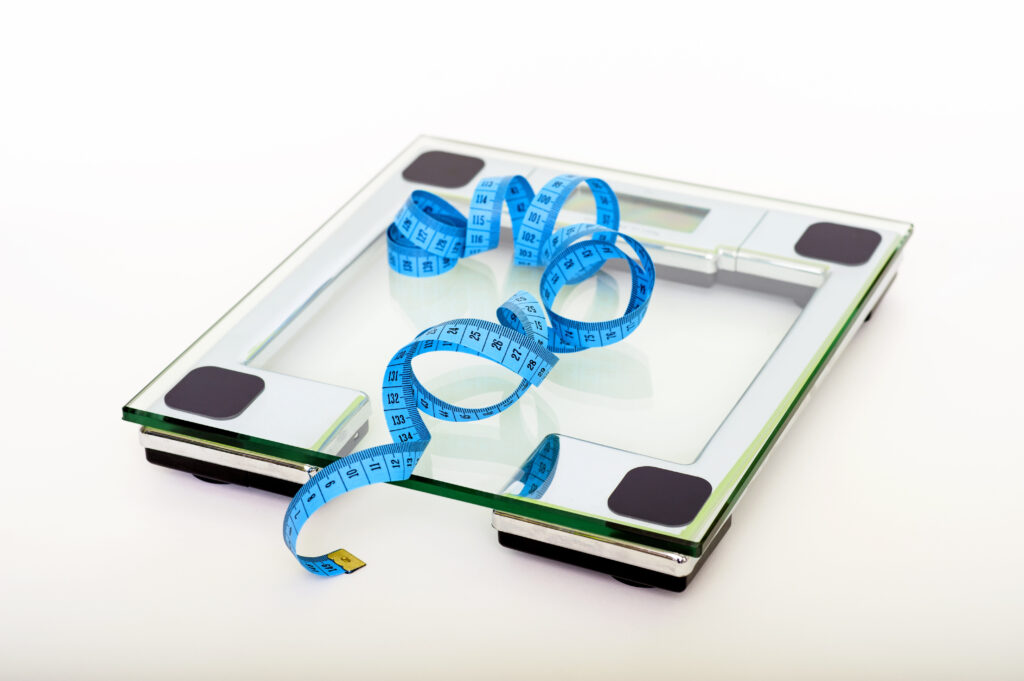
As the new year starts to show its face, so do all of the fad diets as people strive to kick their New Year off right with weight loss goals. There is one thing all diets have in common, but there are key things to keep an eye out for with fad diets.
Many people think us dietitians are going to slam fad diets and wag our finger at anyone who dares to start a fad diet. Well, yes and no, because there’s one thing that all fad diets have in common that we do support and promote. It’s the one principle that is the foundation of what dietitians teach when counseling people for weight loss: a calorie deficit. A calorie deficit means being in a state that you are burning more calories than you are consuming. However, there are wrong ways to go about it.
As much as a calorie deficit is important, behavior change is the most important element of sustained weight loss. And fad diets don’t help you achieve long-term behavior change. If anything, they almost always dictate short-term behaviors that are nearly impossible to follow, and leave you in a worse position than where you started.
The Truth About Fad Diets
Nutrition doesn’t need to be as complicated as all of the media messages make it for people. If you can get down the foundation of weight loss which is a calorie deficit, then you can tailor it for your own lifestyle. A vegetarian diet may work great for some in terms of weight loss, but others may struggle to make this diet work for them. There is no one-size-fits-all. Additionally, some people may find that the keto diet helps them to drop weight and enjoy eating the foods included in it like cheese, meats, bacon and avocado. Others may prefer the Whole30 diet because there are clear guidelines set in terms of what to eat. This requires less thinking, and a clear timeline in place which leaves out the ambiguity of “how long until I see results.”
When you strip away all of the fancy rules, names and urine strips, however, the one thing that drives weight loss in any of these programs or diets is a calorie deficit just put in a fancier package with a prettier bow.
Characteristics of a Fad Diet
Fad diets start to become frowned upon with nutrition professionals when they promote things like juice cleanses, fit teas and avoiding entire food groups. Common characteristics of fad diets include:
- putting people at risk for nutrient deficiencies
- long term health problems or just makes them feel guilty about eating
- wanting or craving certain foods
- is not something that is either healthy or sustainable
Considering health and sustainable weight loss are things we should be going for when we choose to adopt a diet, that’s why we should choose new diet habits wisely and not just based off of what has the most likes on Instagram and Facebook.
Protein and Weight Loss in a Calorie Deficit
If you do find yourself in a calorie deficit, be mindful that the body does require more protein during this time. No matter what diet you choose to be on, protein will always be king when it comes to weight loss, because the body burns through both fat and muscle for energy when in a calorie deficit with inadequate protein. When you burn through your muscle, you not only lose your energy and strength, but also lower your resting metabolism which is something you want as boosted as possible when striving to lose weight. Finally, protein promotes satiety which helps you to stay fuller longer and control your hunger. For more specific protein recommendations for weight loss, check out this blog post.
The bottom line? Even though a calorie deficit is the one single thing you need to ensure weight loss success, remember that it’s also not this simple. A calorie is not a calorie in the way that you may be eating butter, bacon and steaks while in a calorie deficit, but this is not healthy weight loss and could lead to health issues in the long term.
In general, any new diet plan that includes a balance of adequate protein from lean sources, plenty of fruits and vegetables and healthy fats in a calorie deficit along with a well-thought out plan that works for you, your food preferences and lifestyle is all that you need for success. Just as important is remembering to treat yourself with foods you enjoy from time to time and never let a new eating plan make you feel food guilt. Keep this in mind when you’re choosing to make your new year changes!





